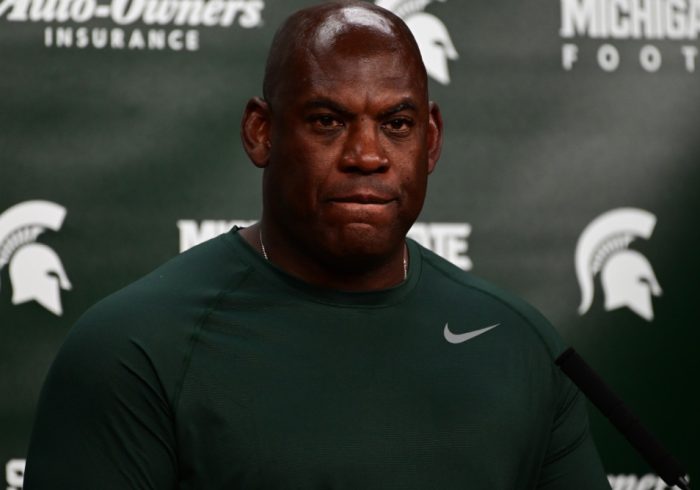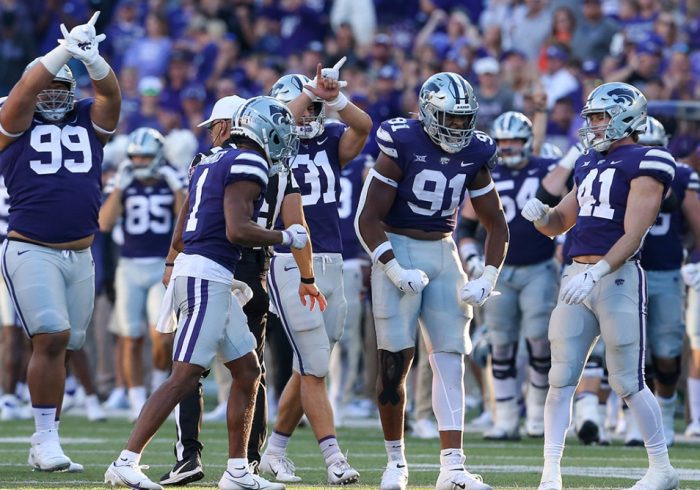Bowl Season officials are still hoping that an expanded College Football Playoff incorporates more of its games.
In a letter sent to conference commissioners, Bowl Season executive director Nick Carparelli encouraged conference leaders to play first-round games at bowl sites instead of on-campus venues, providing a list of reasons for such a move.
In an interview Friday, Carparelli confirmed that the organization sent the letter and remains in “ongoing communication” with the commissioners on this topic.
“The bowl system embraces the fact that the CFP is evolving into a 12-team playoff,” Carparelli tells Sports Illustrated. “This is in the best interest of college football. We understand the commissioners are tasked with finalizing the logistics. We are hopeful they will consider all playoff games being integrated into the bowl structure. I don’t think it’s too late to make changes.”
In a letter similar to the one he sent CFP executives last October, Carparelli argues that bowl sites are better suited to host the four first-round games of the new 12-team expanded playoff. Among the reasons, he says bowls (1) provide a more fair and neutral environment; (2) are uniquely positioned to offer hospitality components such as hotels, practice sites, etc.; (3) are adept at the quick turnaround necessary to host the games and (4) are situated in warm-weather climates that would avoid winter-related game impacts.
“Simply said, bowl games are willing and able to provide a turnkey solution to all College Football Playoff games,” Carparelli writes in the letter.
In the expansion model adopted by CFP executives last month, seeds No. 5-12 play in four first-round games at on-campus sites of the better seed (12 at 5, 8 at 9 and so on). Winners advance to play in the quarterfinals against the No. 1-4 seeds, which receive first-round byes. Only conference champions are eligible for first-round byes.
Six bowls will host the quarterfinals and semifinals in a rotation. The national championship game, at a neutral site, will be selected through a bidding process as it is now.
While Carparelli’s request is likely a long shot, schools hosting impromptu playoff games looms as one of the many logistical issues in expanding the playoff. CFP leaders have created several subcommittees and working groups to study the variety of hurdles, most notably on-campus games.
Some issues include ticket allocation; stadium sponsorship conflicts; game revenue distribution with the CFP; hotel access in small college towns, especially when graduation coincides with the mid-December first-round games; limited game day staff with such short notice and the winterization of stadiums in the north, especially those in the Big Ten.
“We continue to feel the bowls are best suited to provide a quick turnaround these games need,” Carparelli says. “There are so many potential sites that could host these games. We are hopeful they continue to consider that an option.”
The group of 10 commissioners and Notre Dame athletic director Jack Swarbrick meet next week in Chicago to restart discussions on the expansion process. They will attempt to tackle many of these logistical issues as well as the tight calendar in which to host eight additional games. Sports Illustrated examined the main issues of expansion earlier this month, which include the possibility of playing playoff games on weeknights as to avoid conflicts with the NFL.
Commissioners met three weeks ago in Dallas in the first gathering since the CFP presidents adopted the expansion model. They emerged from that meeting hopeful that they could expand in 2024, the earliest possible date for the new playoff to be implemented. At the center of their discussions is the calendar and potentially moving Week 1 to what is currently Week 0. That could be impacted by a proposed 365-day new football calendar obtained by SI earlier this week.
Commissioners have established tentative dates for the four rounds in the expanded CFP, but nothing is concrete. The first round falls roughly two weeks after conference title games. The second round kicks off on the typical New Year’s Eve and New Year’s Day window. The semifinals would be played a week later followed by a championship game that, depending on the year, could kickoff two or three weeks into January.
While Bowl Season is arguing for more involvement, some believe that second-round games should be at home sites and not at bowls. The four highest-seeded teams, while receiving a bye, are not able to host a playoff game, losing any home field advantage and the revenue that comes with it, some athletic directors have noted privately.
More College Football Coverage:



